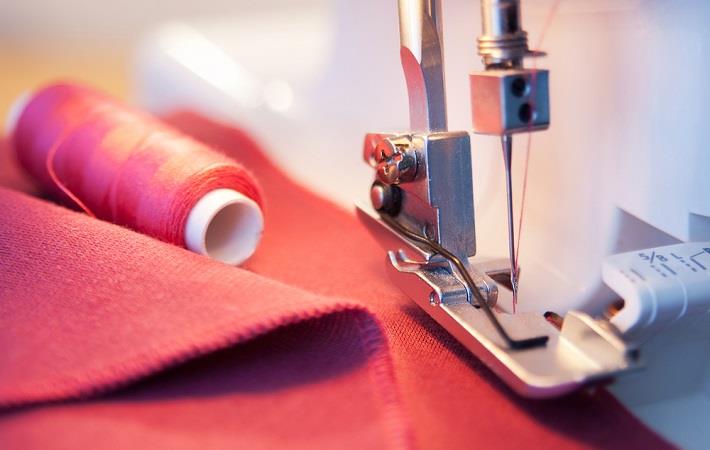The ongoing COVID-19 crisis has thrown up an unprecedented challenge for brands/retailers and all others down the textiles-apparel supply chain. Most manufacturers feel the former should be more considerate in these trying times.
At any point, order cancellations from brands/retailers result in distress for readymade garment manufacturers as the latter have to take care of employees too. "We cannot survive for 2-3 months, if there is no work for a continuous period," Md Joheb Rashid, CEO of Pakiza Knits Composite Limited, which has one of the largest knitting capacities in Bangladesh, told Fibre2Fashion.The ongoing COVID-19 crisis has thrown up an unprecedented challenge for brands/retailers and all others down the textiles-apparel supply chain. Most manufacturers feel the former should be more considerate in these trying times. At any point, order cancellations result in distress for garment manufacturers as they have to take care of employees too.#
However, the reaction of brands to the current situation is not new, according to Aditya Goyal, chief executive and managing director of Anubha Industries, a specialist for sustainable denim and piece dyed fabric solutions, and a part of the Pratibha Group of companies. "Most brands have always resorted to cancellations and price negotiations as and when the economic environment does not suit them. All of them have strong legal advisories and they do not refrain from taking knee-jerk actions to protect themselves. This was expected and it is happening. It will expose a lot of brands and retailers and there will be a lot of changes in the supply chain matrix."
"This was a time when retailers had to stand by supply chain partners," points out Umrao Sher Singh Uppal, chief marketing officer (textile division) of Silver Line Group, the largest conglomerate in the textiles sector in Bangladesh. He adds, "COVID-19 has turned out to be a pandemic and its effects are there for all to see. But these have to be sensibly conveyed by retailers by understanding their reactions on the supply chain. Nobody can push for what they have produced, but everybody can think and then react which will help one and all."
Surat-based textile consultant Kamal Desai views the current situation as a time to introspect and trim down excess fat in the organisation. Asesh Sarkar, managing director of Biocrux India Pvt Ltd, suggests that manufacturers should work out what is the minimum price and quantity that has to be produced to cover the fixed cost. "That's the absolute minimum required for survival in the near future. Also, look whether your factory can do some job work for others. Identify other products which are in demand and which can be made at the existing facilities with minimal modifications and existing skillsets as well."
In the current situation, losses will be there for sure, "but they can be minimised," says Uppal. "We all understand each other's situation and are coming forward to help each other, by holding the shipments back, while running production to keep the business alive. This is the time when true partnership comes into play."
Echoing a similar viewpoint, Rashid says the current crisis has not been created by manufacturers. So, brands/retailers should not cancel orders between execution or ready-for-shipment goods, but instead "need to come forward to help their suppliers. Otherwise they can lose an important and valuable supplier. This is the time for brands to see suppliers as good business partners."
Goyal goes on, "Brands and retailers need to realise that their profits till date have been due to the products they are selling and the investment in those products has been done by their supply chains. Their capacity to absorb shocks is much higher than those of the supply chain partners. The need of the hour is to ensure that there is trust in the system, a commitment towards maintaining cash flows and a commitment to ensure that the supply chain remains available to react immediately to the challenges that will be created when the lockdowns are eased."
Alternately, mentions Desai, "brands/retailers can compensate the manufacturers for cancelled orders once the economy opens up and there is a sudden spurt in demand. This will build a confident relationship for the long term. One can never see a channel member to be separate from the channel. Each has to hold hands with the other in such crucial times and share the risks, just as they share profits in good times."
He adds that the best way for buyers and manufacturers is to sit across the table and work out a win-win situation so that the trade ties continue. He explains, "For job work on the process, we can share details with buyers and the same can be completed and passed on to them at discounted rates so as to minimise losses at both ends. Likewise, raw material stock details can be shared, and designs worked out utilising the same material for future orders."
"If the day comes to an end, so will the night." So, requests Uppal, "our vertical partners on both sides have to react more sensibly by putting the thoughts for discussions and debates."
In the meanwhile, Pakiza Knits Composite has started making personal protective equipment (PPE) samples. "We will show the sample to the persons concerned. If they are satisfied with standard and quality, then we might start producing PPE for doctors, nurses and law enforcement teams," informs Rashid.
Sarkar has interesting ideas. "Minimise inventory by liquidating the stock even by giving hefty discounts so that the fixed cost is recovered. Even give cash discounts because recovery will be very risky. Overhaul the plant or factory in terms of housekeeping, hygiene and skill training, etc, for the workforce. Renegotiate the price and think out of box whether by slightly changing the current products, one can give a significant cost advantage. Make health and hygiene of the factory a selling proposition. Last, do not desert your current trading partner; maintain a minimal relationship while looking for new ones."
Fibre2Fashion News Desk (RKS)
